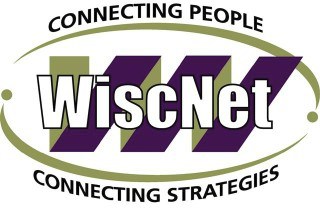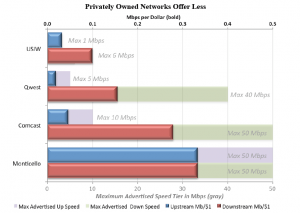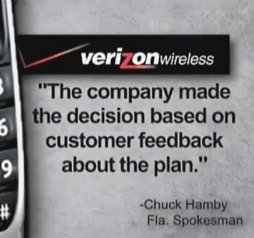
Wisconsin Republicans are outraged AT&T and CenturyLink are not able to charge taxpayers and students more than double the price for broadband in schools and libraries.
Wisconsin taxpayers and students could face substantially higher taxes and tuition fees because Republicans prefer AT&T and other commercial Internet Service Providers deliver high-speed Internet access to schools and libraries, even if prices are more than double those charged by the existing non-profit, cooperative provider.
Last week, under growing pressure and criticism from Republican legislators and the potential threat of private litigation, the University of Wisconsin withdrew its contract with WiscNet, fearing a costly backlash that could interrupt the school’s educational and research missions.
Republicans in the state legislature forced a competition ban in the 2011-2013 budget directly targeting WiscNet, an institutional broadband provider serving 300 public schools, state agencies, and 15 of 17 Wisconsin library systems. They consider WiscNet a direct competitive threat to the business interests of AT&T and other telecommunications companies.
The loss of business from UW has raised questions about the ongoing viability of WiscNet’s operations, and has encouraged critics to continue the campaign against public broadband.
“Isn’t it a sad day when political pressures from telephone company lobbyists keep us from working together,” asked WiscNet Wire. “It’s frustrating, yet fascinating.”
Many of WiscNet’s members report that “going private” for Internet connectivity will more than double their costs. This was confirmed by Wisconsin’s Legislative Audit Bureau, which reported a member paying WiscNet $500 month for Internet service would face bills of $1,100 or more if provided by AT&T or other telecom companies.
Republicans have complained WiscNet’s close ties to the state university system and its efforts to resist the Walker Administration’s efforts to dismantle the institutional fiber network’s current operational plans border on unethical.
Cheerleading the Republicans are providers including AT&T and CenturyLink, both filing their own respective complaints (AT&T) (CenturyLink). Joining them is the Wisconsin State Telecom Association (WSTA), which represents Wisconsin’s independent rural phone companies like Frontier Communications.
 William Esbeck, WSTA’s executive director, has been on WiscNet’s case for years. He said WiscNet’s recent victory in a procurement process to supply Internet service across the UW system was proof the bidding was rigged.
William Esbeck, WSTA’s executive director, has been on WiscNet’s case for years. He said WiscNet’s recent victory in a procurement process to supply Internet service across the UW system was proof the bidding was rigged.
“The UW simply created a ‘request for proposals’ that matched what WiscNet was already doing,” said Esbeck.
Republican legislators joined Esbeck threatening hearings and unspecified repercussions for the “civil disobedience” on display by university officials attempting an end run around the Walker Administration.
“There have been repeated, flagrant violations of state law — intentional deception at a level that I just am flabbergasted by, even today — and no accountability for it whatsoever,” said state Rep. Dean Knudson (R-Hudson), at a recent budget committee hearing. Among Knudson’s biggest campaign contributors: the WSTA and CenturyLink.
In a May 23 letter sent to UW System president Kevin Reilly, state Sen. Paul Farrow (R-Pewaukee) accused UW officials of “mismanagement and unethical behavior,” saying they’d shown disdain for the legislature and contempt for the laws and directives it passed, reported Bill Lueders, the Money and Politics Project director at the Wisconsin Center for Investigative Journalism.
Among Farrow’s biggest campaign donors: TDS Telecom and the WSTA.
Both Farrow and Knudson are also known members of the American Legislative Exchange Council (ALEC), a corporate financed group that produces anti-public broadband draft legislation for introduction by the group’s members. Both CenturyLink and AT&T are sponsors of ALEC, AT&T in particular.
The Walker Administration has given the UW System an extra six months to sever all ties with WiscNet.


 Subscribe
Subscribe







